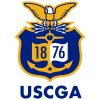Joseph Benin, Ph.D., P.E., Captain, USCG
 CAPT Benin graduated in 2001 with a B.S.E.E. with High Honors from the Coast Guard Academy, having served as the Regimental Honor Officer and Chairman of the Cadet Standards of Conduct Board. He then served as the Electrical and Electronics Officer aboard the USCGC Healy (WAGB-20) while completing his Engineer-Officer-In-Training (EOIT) qualifications. In 2003, he began graduate studies at the Georgia Institute of Technology, was selected as an adjunct MacArthur Fellow, and ultimately earned a Master of Science degree in Electrical and Computer Engineering and a Master of Science degree in Information Security. In 2005, he was selected as a member of the Permanent Commissioned Teaching Staff (PCTS). He successfully defended his dissertation and graduated with a Ph.D. in Electrical and Computer Engineering in 2012 and presently focuses on the areas of computer networks, programming, and security. Dr. Benin has previously served as the Director of Academic Advising and presently is the chair of the USCGA Cyber Council and Cyber Systems Program Coordinator.
CAPT Benin graduated in 2001 with a B.S.E.E. with High Honors from the Coast Guard Academy, having served as the Regimental Honor Officer and Chairman of the Cadet Standards of Conduct Board. He then served as the Electrical and Electronics Officer aboard the USCGC Healy (WAGB-20) while completing his Engineer-Officer-In-Training (EOIT) qualifications. In 2003, he began graduate studies at the Georgia Institute of Technology, was selected as an adjunct MacArthur Fellow, and ultimately earned a Master of Science degree in Electrical and Computer Engineering and a Master of Science degree in Information Security. In 2005, he was selected as a member of the Permanent Commissioned Teaching Staff (PCTS). He successfully defended his dissertation and graduated with a Ph.D. in Electrical and Computer Engineering in 2012 and presently focuses on the areas of computer networks, programming, and security. Dr. Benin has previously served as the Director of Academic Advising and presently is the chair of the USCGA Cyber Council and Cyber Systems Program Coordinator.
Education
- Ph.D.E.C.E., Georgia Institute of Technology, 2012
- M.S.I.N.F.S., Georgia Institute of Technology, 2005
- M.S.E.C.E., Georgia Institute of Technology, 2005
- B.S.E.E., U.S. Coast Guard Academy, 2001
Courses Taught
- Advanced Research Projects in Cyber Systems
- Computer and Network Security
- Computer Communications and Networking
- Computer Control Systems
- Cyber Risk Management
- Digital Circuits and Computer Systems
- Electrical Circuits and Machines
- Electrical Engineering I
- History of the USCG
- Introduction to Computer Programming
- Introduction to Computing
- Projects in Electrical and Computer Engineering Advisor
- Signals, Systems, and Transforms
- Software Design I
- Software Design II
- Software Engineering
- Transition to Object-Oriented Programming
Selected Publications and Presentations
- Benin, J. and Srinivasan, A.; “Transition to Object-Oriented Programming (TOOP): An Innovative and Hands-On Introduction to Linux, OOP in C++, and Arduinos Using EMoRo”, ASEE Zone 1 Conference, 11-13 April 2019, Niagara Falls, NY
- Hall, J.; Lee, J.; Benin, J.; Armstrong, C.; Owen, H., “IEEE 1609 Influenced Automatic Identification System (AIS),” Vehicular Technology Conference (VTC Spring), 2015 IEEE 81st, 11-14 May 2015
- Benin, J., and Howie, S. T., & Hannon, B. B., and Williamson, N. (2015, June), Learning IPv6: Becoming a Subject-Matter Expert of a Technical Topic through a Year-long Capstone Design Project, Paper presented at 2015 ASEE Annual Conference and Exposition, Seattle, Washington. 10.18260/p.24408
- Joseph Benin, Julien Poumailloux, Henry Owen, and Abdelmadjid Bouabdallah. 2012. Impact of pseudonym subsequent pre-computation and forwarding in hybrid vehicular networks. In Proceedings of the ninth ACM international workshop on Vehicular inter-networking, systems, and applications (VANET ’12). ACM, New York, NY, USA, 123-126
- Benin, J.; Nowatkowski, M.; Owen, H.; , “Vehicular network pseudonym distribution in congested urban environments,” Southeastcon, 2012 Proceedings of IEEE , vol., no., pp.1-5, 15-18 March 2012
- Benin, J.; Nowatkowski, M.; Owen, H.; , “The effects of quality of service on vehicular network pseudonym distribution in congested urban environments,” Wireless Communications and Networking Conference Workshops (WCNCW), 2012 IEEE , vol., no., pp.365-370, 1-1 April 2012
- Benin, J.; Nowatkowski, M.; Owen, H.; , “Vehicular Network simulation propagation loss model parameter standardization in ns-3 and beyond,” Southeastcon, 2012 Proceedings of IEEE , vol., no., pp.1-5, 15-18 March 2012
- Benin, J.; Nowatkowski, M.; Owen, H.; , “Framework to Support Per Second Shifts of Pseudonyms in Regional VANETs,” Vehicular Technology Conference Fall (VTC 2010-Fall), 2010 IEEE 72nd , 6-9 Sept. 2010
- Benin, J.; Nowatkowski, M.; Owen, H.; , “Unified pseudonym distribution in VANETs,” Wireless and Mobile Computing, Networking and Communications (WiMob), 2010 IEEE 6th International Conference on , pp.529-533, 11-13 Oct. 2010
- J. Benin and P. DiPetro, “Ubiquitous Computing: Video-Audio Support for Therapy of Children in the Classroom,” Science, Technology, and Public Policy, Georgia Institute of Technology, April 2005
- J. Benin, “Radio Frequency Identification Tags and Their Implications to Container Security,” MacArthur Fellowship Thesis. Georgia Institute of Technology, April 2004. Re-released as USCGA Center for Advanced Studies Report 09-05
- J. Benin and D. Kowalczyk, “Engineering Plant Monitoring Aboard the HEALY,” Systems Times, Winter 2003
- K. Gross, R. Hartnett, M. McKaughan, K. Shmihluk, J. Benin and C. Oates, “USCG Academy’s Efforts in Digital VHF Direction Finding,” Proceedings of The Fourth SwRI Symposium on Radiolocation and Direction Finding, San Antonio, TX, May 2002
- J. Benin, “Digital VHF Direction Finding,” Scholar’s Project Paper, United States Coast Guard Academy, May 2001
Professional Memberships
- Professional Engineer, State of Washington
- Institute of Electrical and Electronics Engineers
- Institute of Navigation
- American Society for Engineering Education (ASEE)
